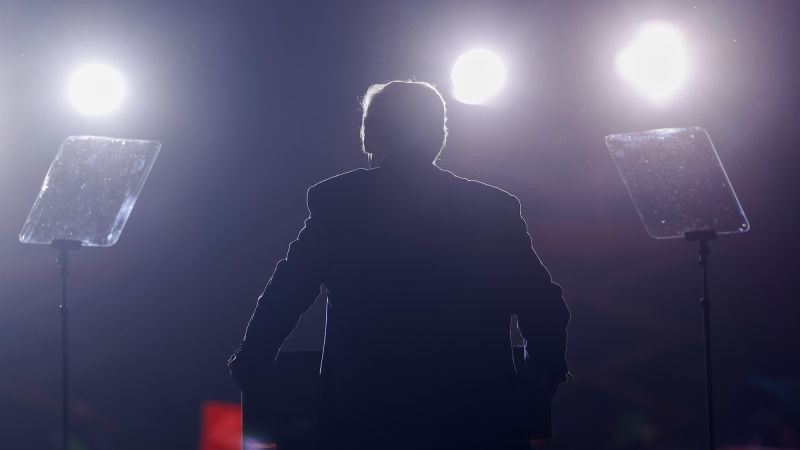New York
The startling revelation this week that MSNBC hosts Joe Scarborough and Mika Brzezinski’s journeyed to Mar-a-Lago to meet with President-elect Donald Trump prompted a question that many members of the media are quietly asking: just how worried should journalists be?
More specifically, and more practically, what preparations and precautions should news outlets take ahead of Trump’s return to power?
Scarborough and Brzezinski, two old friends turned staunch opponents of Trump, wanted to meet with the president-elect, in part, over concerns about “retribution,” something Trump famously promised during his reelection campaign.
The “Morning Joe” hosts are far from alone.
“I do think that the current environment is going to be much more difficult than it was even in the first term for Donald Trump,” former Washington Post executive editor Marty Baron told fellow journalists on a Zoom call Thursday.
“You can just tell by the nominees for cabinet positions and agency heads that this will be an administration of retribution,” Baron added.
Through my reporting for the daily Reliable Sources newsletter, I have found a wide range of views of the matter across the news industry. It’s as if some media leaders are expecting it to rain while others are bracing for a major hurricane. And no one is certain what to expect.
But given Trump’s open hostility toward the news media, there is a general sense of agreement that volatile times are ahead.
“We know that when democracies are under threat, journalists are among the first to be attacked,” Committee to Protect Journalists chief executive Jodie Ginsberg said Thursday night at her organization’s annual fundraising gala in New York.
Ask one journalist what they’re worried about, and they might bring up the sludge of anti-media hate on social media. Ask another, and they might confess fears about newsrooms being raided and media owners being audited.
Trump’s impending return to power was a theme of the conversations at the Committee to Protect Journalists gala. Attendees discussed the need to report without fear or favor, to be open-minded but clear-eyed about what actions the Trump administration might take, and to avoid fearmongering but to consider a range of possibilities.
Already, some preparations are underway. Newsroom leaders, lawyers and other key players are discussing what Trump’s promised “retribution” could look like and how they would respond.
The Information’s founder and CEO Jessica Lessin, who chaired the gala, spoke from the stage about some of the actions newsrooms are taking.
“Journalists are being forced to hire their own security, for themselves and their families,” she said. “And publications are setting aside massive legal budgets for the challenges we know are to come. It’s chilling.”
But it’s also reinvigorating – a point that I have heard many news executives make in recent days. “As scary as it seems right now, remember this: This time in world history is a call to action for all of us in this profession,” Lessin said. “It is a call to fight those who attempt to discredit us; it is a call to fight for the public’s trust; and it is a call to defend our work at all costs. History may depend on it.”
The Committee to Protect Journalists knows the authoritarian playbook for silencing the press all too well, board chair Jacob Weisberg said in his remarks, and “if and when we see parallel moves to curtail the press here, we will call them out and challenge them forcefully.”
Certainly, some of the worry and speculation may turn out to be totally overblown. But the current chatter reflects the unknowns and the uncertainty of the moment. Here are some of the specific concerns that have arisen among members of the media:
- In the second Trump term, legal threats and frivolous lawsuits could pile up, costing newsrooms money and time.
- The Trump administration could reinstate the Justice Department’s past practice of pursuing reporters’ records in leak investigations.
- Online and real-world harassment could increase if political extremists feel emboldened to target journalists.
- Media companies and individual journalists could face politically-motivated IRS audits.
- Government agencies like the FCC could use existing laws, like those governing TV station licenses, to pressure newsrooms.
- The administration could “slow or even kill future transactions” by media companies deemed opponents, as ’s Matt Egan wrote earlier this week.
- Nonprofit news outlets could face newfound scrutiny.
- Already-slow responses to public record requests may get slower. The media watchdog site NiemanLab reported that “experts expect a surge in requests, longer delays, and more court dates.”
- Government agencies may become (even) less cooperative with news outlets.
The cascading pressures could “make other journalists less likely to push hard on vigilant coverage,” Poynter senior vice president Kelly McBride said on a recent episode of “The Poynter Report.”
Baron, who led the Post’s coverage of Trump’s first term in office, said Thursday that Trump “clearly has decided to target any independent arbiter of fact, basically all of the institutions of government, ones that we’ve come to rely upon.”
“In particular,” Baron predicted, “he will endeavor to prosecute journalists, which is not something that has been done in the past, and not just prosecute leakers, not just investigate who the leakers were, but go after the journalists, and maybe even go after their institutions and really test the law in that respect.”
Earlier this week in a post on Truth Social, Trump urged Republicans to nix a bipartisan bill that would give journalists greater protections under federal law. The legislation, known as the PRESS Act, would prevent the government from forcing journalists to reveal their sources and limit the seizure of their data without their knowledge.
“REPUBLICANS MUST KILL THIS BILL!” he wrote.
’s Liam Reilly contributed reporting.
